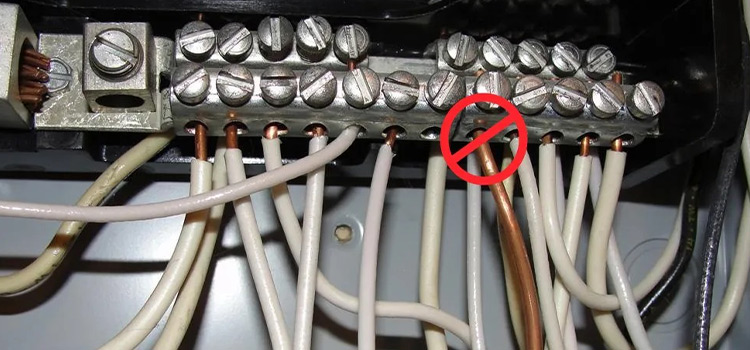Why is My Ground Wire Hot? | Reasons & Solutions
Your ground wire may get hot due to multiple reasons. They include improper connections leading to the ground wire, leakage within the circuit, a lightning strike to the main power lines, or general damage to the wire.
When you face such an issue, turn off the power supply and refrain from using the associated appliances. Check the connectors and tighten them. If there is a leakage, hire a professional electrician.

Reasons Why is Ground Wire Becoming Hot
Although a ground wire is supposed to be a safety net in the electrical circuit, sometimes it overheats due to various reasons. When overheating occurs, it means that something is wrong with the circuit.
Loose Connection
A bare ground wire gets hot whenever the connectors are improperly connected. It is one of the most common problems that many fail to tackle in time. A bad connection allows the electricity to flow through the ground wire, causing it to heat up. If left untreated, it can cause irreversible damage.
The possibilities are that the ground wire may be touching the primary wire and as a result, the ground wire even melts at some point. It is not advisable to solve this issue yourself unless you have some prior knowledge about electrical wiring.
Leakage Within the Circuit
We already know that the purpose of the ground wire is to absorb the excess amount of electricity and prevent electrical damage. If your group wire is overheating, then that means there is a leakage of electricity somewhere in the system.
Again, leaving this issue untreated will have several consequences. Some of them are erratic power readings and damage to other electrical equipment at home.
Besides, the most probable reasons for leakage in the circuit may be the semiconductors or capacitors. Using a clamp meter device can come in handy in such situations. However, the best option for you is to hire a professional.
Lightning Strikes
If you live in a place where thunderstorms are common, then it would not be surprising to see the ground wire overheating. If lightning strikes one of the main power lines connecting your house, then the chances are high that it will affect your whole electrical system.
How to Fix a Hot Ground Wire?
There are three ways one can tackle this situation.
Turning Off the Power
If you think your bare ground wire is carrying current, the first thing you should do is to turn off the power without touching the wire. Only after that, you can go through the inspection or diagnostic phase without any risk. Also, make sure the breaker is not tripped.
Checking the Connectors
Naturally, if your ground wire is getting hot, you would check the connectors responsible for the bare ground wire. See if any connector is loose or frayed due to a sudden surge of electricity. Tighten the connectors or replace them with new ones to fix this issue.
Leakage Inspection
Leakage in the circuit is not a do-it-yourself job because it can often go deeper into the circuit. You should see an experienced electrician determine the spot of the leakage. However, you do not want to leave this untreated.
Conclusion
When your bare ground wire gets hot, you do not have to panic. However, you cannot be too lenient either. Tackle this issue at the earliest and be sure to hire a qualified electrician if you do not want to suffer further damage.
Subscribe to our newsletter
& plug into
the world of circuits